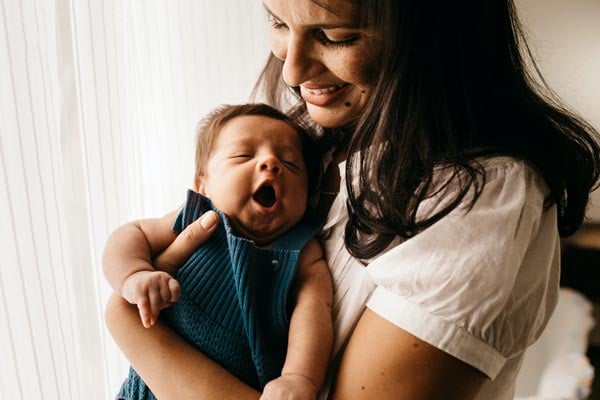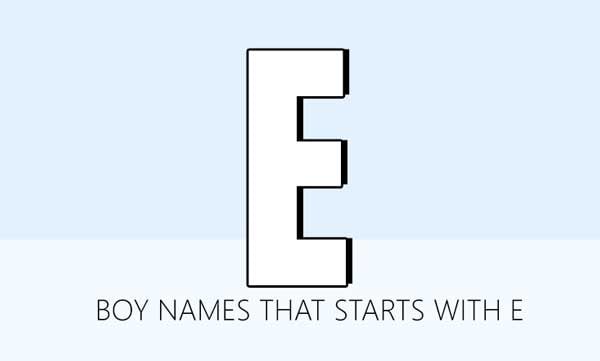Baby’s cooing milestone
Verbal milestones are some of the most exciting moments for parents. Cooing, laughing and babbling are not only adorable, but they also allow you to communicate with your little one.
You may be anxious for these moments to come, or maybe you’re wondering whether your baby should have already moved past this milestone.
When do babies start cooing? If your little one hasn’t made a peep yet, when is it time to worry? What about other milestones, like laughing and smiling?
We’ll cover all of this and more to help you better understand your baby’s verbal milestones.
What Is Cooing?
Cooing is your baby’s way of finding her voice. Those adorable little noises she’s making are also actually a combination of laughter and vowel sounds. Sometimes, it can sound like your baby is making gurgling noises.
Cooing is a baby’s first vocal milestone, and it’s a sign that your little one is content and happy.
Along with language development, cooing also helps your baby exercise her palate, lips and tongue. It’s her way of figuring out how her voice works and how to move her mouth to make sounds.
In many ways, cooing becomes your little one’s means of expression.
When Do Babies Start Cooing Regularly?
Most babies start cooing around six to eight weeks of age. But remember that every baby is different and develops at different paces. Your little one may start cooing earlier or later. That’s perfectly okay.
Not all babies make “ooh” or “aahh” sounds. Some just make gurgling noises. Around 6-8 months old, your baby may start gurgling and cooing more in response to your voice.
If you’re concerned that your baby isn’t cooing yet, talk to your pediatrician. She may just be developing at a slower pace, or there may be an underlying issue.
Cooing is a sign that your baby is developing her language skills. You can encourage and support her journey by:
- Talking back to her
- Making silly faces or sounds
- Blowing on her belly and laughing
At just four weeks old, babies can already distinguish between similar syllables. Around the time they start cooing, babies are already associating sounds with lip movements.
At 4-1/2 months, babies can recognize their own names, but they only know them as important words, like “Hello.” Not until your little one reaches six months will she understand that her name is referring to herself.
When Do Premature Babies Start Cooing?
If your baby was born prematurely, then her milestones may come a bit later than a full-term baby. Milestones for preemie babies are usually based on their adjusted age, which is based on your little one’s due date.
For example, if your baby is 7 months old and she was born 2 months early, then her adjusted age is 5 months old.
When evaluating milestones, your pediatrician will use your baby’s adjusted age.
Babies go through some important developmental stages during the last few weeks of pregnancy. When babies are born prematurely, they miss out on this developmental time.
You can read more about baby’s first-year milestones here.
Don’t worry – eventually, most babies will catch up to other babies of the same age. Many catch up completely.
When Do Babies Start Cooing and Smiling?
Just like cooing, smiling is another form of expression for your baby. Some babies start smiling after just a few weeks of life, but this is usually just a sign that your newborn is passing gas.
Social smiles, or intentional smiles, develop a little later on – around the same time your baby should start cooing (6-8 weeks of age).
The combination of coos and smiles are enough to make parents melt. These are important and memorable milestones.
Baby Not Cooing – What To Do?
If your baby isn’t cooing, a hearing problem may be to blame. Before you panic, you should know that hearing issues are rarely the cause of baby’s not cooing. But it certainly doesn’t hurt to have your pediatrician check your little one’s hearing.
Talking to your little one, singing and cooing at her may help encourage her to start cooing.
It’s important to remember that some babies just take a little bit longer to develop. The best thing you can do is talk to your doctor if you’re worried about her speech and language development.
Other Verbal Milestones In Babies:
Cooing is a baby’s first verbal milestone, but throughout her first few years of life, she’ll go through several more vocal milestones.
When Do Babies Start Laughing?
Babies may start laughing and giggling around 3-4 months old. Others take a little bit longer to laugh out loud.
Lots of things can trigger your little one’s laugh. It could be her favorite toy or seeing her favorite people (that’s you, Mom and Dad!). Once she starts laughing, expect her to keep going.

Babies love to hear their own voices and seeing how others react to their sounds. Once she discovers how fun it is to laugh and how happy it makes you, she may just giggle for fun.
If you want to encourage more giggles and laughs:
- Talk to your baby often
- Make silly faces and sounds
- Test out your goofy dance moves
When Do Babies Start Babbling?
Many parents use the terms “cooing” and “babbling” interchangeably, but they are two different things. Babbling is a more sophisticated form of cooing. Your baby may be incorporating all kinds of sounds into her babbling as her language skills continue to develop.
Babies usually start babbling somewhere between 6 and 11 months of age. Around this time, they’re also learning how to use gestures and may be imitating other sounds she’s hearing.
Some babies babble a little earlier. Others take a little longer. If your baby was born prematurely, keep in mind that she may start babbling a little later on.
You may notice that around 10 months, your baby is combining sounds together to make her own little language.
While she may not be saying her first words yet, she’s starting to recognize and understand words associated with familiar objects and names.
Read more about the baby’s babbling milestone here.
Baby’s First Word: When Do Babies Start Talking?
Once your baby starts babbling, talking is just around the corner. Most babies start uttering their first words around 12 months old.
While every baby is different, some of the common first words are:
- Ma or mama
- Da or dada
- Hi
- Bye-bye
- Kitty
- Doggy
- Juice
- Cookie
- Milk
Once your baby has said her first word, she’ll keep trying for more. It will take some time for her to build up her vocabulary. It will be slow-going at first. She may learn one or two new words per month.
She’ll start trying to ask questions, and she’ll love using the word “no.”
At this stage, babies understand more words than they can pronounce. In fact, your baby can understand at least 50 words at ages 11-14 months.
19-24 Months – Talkative Toddlers
Around 19-20 months, toddlers experience what they call a “language explosion.” Researchers still don’t know why this happens, but it seems like, at this age, toddlers seem to learn new words left and right.
Toddlers can learn as many nine words per day at this age. That’s some serious progress from the one to two words she was learning just a few weeks prior.
This is about the time that she’ll be asking “why?” when talking about everything.
By the time your child reaches the end of her second year, she’ll be able to string together short sentences.
25-30 Months
At this age, your baby is starting to refine her language skills. Words like “what,” “when,” and “where” start to enter her vocabulary. She may also start using and understanding the words “know” and “think.”
While your child is doing her best, she’ll naturally make mistakes when trying to form sentences or use different tenses of words. Repeating the sentence back correctly can help your child understand the correct way to say things rather than drawing attention to her errors.
Related: WHAT IS SOCIAL AND EMOTIONAL DEVELOPMENT IN BABIES
3 Years Old
By your baby’s third year, she should be able to communicate complete thoughts. As she gets closer to four years old, she’ll start putting together long sentences and combining multiple thoughts.
At this stage, your child should be able to follow storylines and even remember things from them. She may also make up her own phrases that make no sense – but are completely adorable.
Now’s a great time to read to her from storybooks with narratives.
A child’s language skills will only continue to improve and develop from here. Talking to your child, listening to her while she speaks and encouraging communication can help your little one develop excellent language skills and learn appropriate etiquette for having conversations.
But before you get to conversations, your baby will first need to start cooing and babbling. For some children, it can take longer than others to start cooing and talking. Try not to worry if your baby isn’t cooing at exactly six weeks. Talk to your pediatrician about your concerns if your child is having trouble reaching her verbal milestones.
Related:
7 THINGS I REGRET NOT BUYING FOR MY BABY
EYE CONTACT IN BABIES: MY BABY DOESN’T LOOK AT ME
TERRIFYING THINGS THAT NEWBORN BABIES DO THAT ARE COMPLETELY NORMAL








